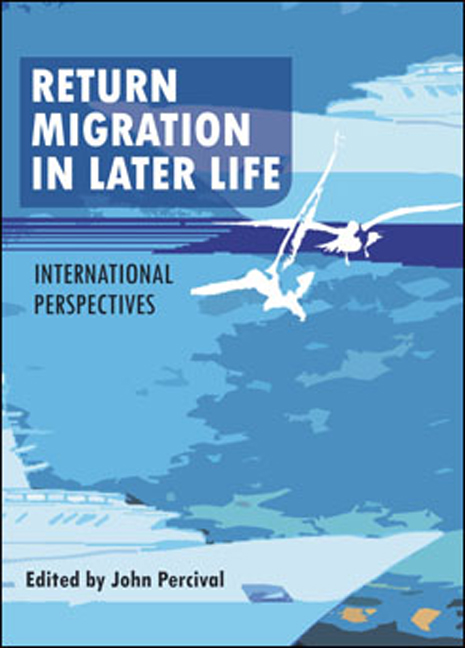It may be that the satisfaction I need depends on my going away, so that when I’ve gone and come back, I’ll find it at home.
Rumi (translated by Coleman Banks,1995, Penguin Classics)Introduction
The main objective of this book is to explore the motivations, decision-making processes and consequences, when older people consider or actualise return migration to their place of origin; and also to raise the public policy profile of this increasingly important subject. The collection will examine in detail a range of themes affecting return migrations, including: autonomy and personal imperatives; socioeconomic considerations; cultural assimilation and psychological adjustment; belonging and attachment to place; kinship and friendship needs; and health and resource planning.
Return Migration in Later Life is unusual in four important ways. First, the collection has a wide remit and does not exclusively focus on refugee, political, heritage, lifestyle, or family-oriented return, but encompasses all these constituent parts and, in so doing, highlights core themes as well as particular issues and comparative factors. Second, chapters reflect a variety of quantitative, qualitative and ethnographic methods of enquiry, by researchers from different disciplines, representing social gerontology, anthropology, migration and human geography perspectives. Third, there are varying emphases on permanent return, non-permanent returns, and visits to place of origin, which reflects variety in strategic approaches and also recognises that visits are important signifiers of a return home. Finally, Return Migration in Later Life is unique, as far as I know, in bringing this breadth and depth of exploration to bear on older people's return movements, providing a focused synthesis that allows a neglected subject to receive due attention in an era of ageing and more mobile societies. As such, it is hoped that the book will be of practical use and interest not only to those from academic disciplines mentioned above, but also to social welfare professionals, policy makers and practitioners involved in tourism, as well as older people considering return migration.
There are two important and related reasons for this consolidated focus: a need for more detailed research on return migration; and a general lack of attention to migration in later life.
The experience of ‘going back’ has generally been absent from migration literature (Baldassar, 2001:4), as it has within anthropology (Stefansson, 2004), and as a result we have limited knowledge of motivations, socioeconomic influences, or cultural impact on home or host country.
